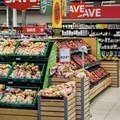
Marketing & Media trends
Industry trends
BizTrends Sponsors
Subscribe & Follow
What will be impacting shoppers and retailers as 2024 unfolds?

In turn, retailer strategies have had to be agile enough to handle the unpredictability and fluctuations.
According to reports, South Africa’s retail trade grew by 2.7% in December 2023 compared to the same period in 2022, following two consecutive months of declines that marked the strongest increase in retail activity since 2022.
While any type of growth in the sector is positive, the path forward for 2024 remains uncertain amidst macroeconomic fluctuations, geopolitical uncertainties and the rapid advancement of technology. What we can be certain of is that global megatrends are increasingly impacting the sector and retailers must prove their chips by being impressively innovative in this highly competitive market.
Savvy shoppers are watching their Rands spend, seeking convenience and waiting for reasons to be loyal
As shopper behaviour becomes intricately intertwined with macroeconomic factors, they are buying less, buying better, and buying in different ways. As the nation grapples with economic recovery amid global uncertainties, a fiercely independent and value-driven shopper is driving the agenda.
High inflation and constrained disposable income means that shoppers are more savvy than ever before. No longer are shoppers driven by brand loyalty, but rather the ability to capitalise on specials, discounts, loyalty and points programmes, and other innovative ways to secure their share of wallet.
In an era of heightened competition and shifting consumer preferences, loyalty programmes and points systems play a pivotal role in driving customer retention and brand loyalty. By offering personalised rewards and exclusive benefits, retailers can incentivise repeat purchases and hopefully start to entrench a new era of customer loyalty.
A new era of savvy shoppers are also looking for convenience and speed. There has been a marked rise in delivery apps, and we are not just talking groceries and convenience foods any more.
These days, time-strapped consumers can get almost anything delivered. From pet food to medicine, clothes, homeware and gifting, shoppers want a one-stop-shop.
Whether this one-stop-shop is in the palm of their hands as part of a digital offering or a brick and mortar store, retailers are working towards capturing as many shoppers as they can under one roof instead of losing them to other retail groups while increasing both footfall and basket size through multiple products and value-added services.
In terms of fashion, there is growing competition in the digital app space as the popularity of ‘fast fashion’ outlets such as Shein and the late-to-market Temu disrupt the sector. With the ability to outpace major brands in both delivery and cost, the global fast fashion market size is estimated to grow by $67.2bn between 2023 and 2028 – a worldwide concern for retailers in the fashion landscape.
Standalone specialty stores offering greater ‘premiumisation’ as a growth strategy
Retailers across South Africa are diversifying their portfolios, creating destination stores in search of growth. These destination stores are anchored by a well-loved brand but bring a diversified offering while still giving shoppers the feeling of premium products.
Take, for example, Woolworth’s recent acquisition of Absolute Pets, essentially creating a ‘Woolies pets’ that caters to the growing market of Woolworths customers who are willing to spend on their fur-families.
Retailers moving into adjacent markets is not a new phenomenon, but we’ve been seeing a particularly large influx of specialty stores that capitalise on a brand name to capture a loyal market over the last few years – a trend that is expected to continue.
A global landscape means the introduction of global players
As South Africa's retail market becomes increasingly saturated, domestic players face intensifying competition from global retail giants – think Amazon and the measures that local ‘e-tailers’ will have to go to if they want to defend their territory and keep their share of the burgeoning e-commerce market.
With their vast resources and economies of scale, global players leverage aggressive pricing strategies and innovative marketing tactics to gain market share and expand their footprint in the region.
In response, local retailers must differentiate themselves through unique value propositions, localised offerings, and personalised customer experiences to remain competitive in an increasingly crowded marketplace.
Only through innovation and embracing change can South African retailers thrive amid evolving consumer trends and industry dynamics.
With retail sales estimated to represent close to 20% of the country’s GDP, it’s crucial that the South African retail sector rises to meet shifting shopping patterns. Trade Intelligence head of research, Caroline Short, says that the FMCG retail sector is the jewel in the crown of the South African economy. We absolutely cannot let this jewel lose its shine.
About Serena Ho
Serena Ho, director and head of consumer market at BDO South Africa IncRelated
Bucket lists drive a shift in shopping habits: happiness over possessions 1 day How technology is shaping South Africa's retail landscape 5 Feb 2025 Stats SA updates its inflation basket 29 Jan 2025 1 in 3 South Africans use Temu: survey reveals insights into consumer behavior 22 Jan 2025 #BizTrends2025: Scopen's Cesar Vacchiano - The trends shaping marketing in 2025 13 Jan 2025 AI to transform advertising in fundamental shift in digital marketing in 2025 3 Jan 2025














